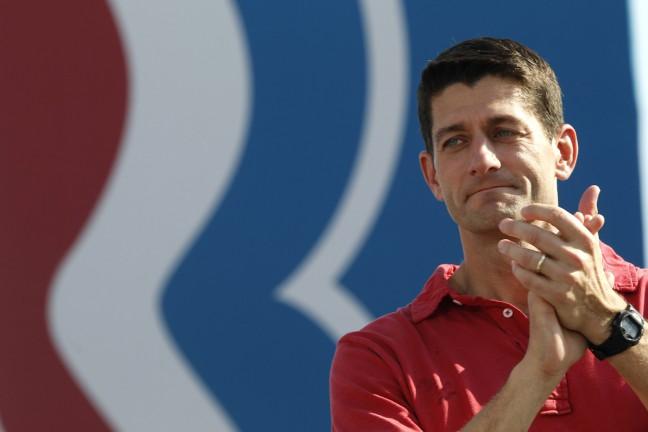I generally have a favorable opinion of Speaker of the House Paul Ryan. He seems, unlike so many people of his party, to actually care about the well-being of the middle class. This thought, though, was dispelled when an analysis of the tax plan was released.
This study, conducted by the non-partisan Tax Policy Center, found that by 2025, 99.6 percent of Ryan’s proposed tax cut would benefit the richest 1 percent of Americans. This gives the top 1 percent of Americans a 10 percent raise to their incomes and a 15 percent raise to those in the top 0.1 percent of Americans.
But don’t worry, remainder of America, Ryan hasn’t forgotten about you.
Those in the lowest, second and middle quintile of income distribution will see their income change by, at most, half a percent. This means the poorest Americans, those in the lowest quintile, will have an additional $50. Conversely, the top one percent will save $240,000 in taxes.
Now, this seems inherently unfair, but it’s more than that. It is likely to be a disaster for the economy.
The analysis shows federal revenue losses will be vast. When including interest payments on America’s debt, the federal government loses $3.7 trillion by 2026 and $8.0 trillion by 2036. The study states, “If the tax cuts were not offset by spending cuts, we estimate the national debt would rise by 13.5 percent of GDP by 2026 and 19.3 percent of GDP by 2036.”
The debt to GDP ratio in the U.S. already tops 100 percent, meaning we have more outstanding debts than the total value of production in a given year. Adding 13.5 percent or 19.3 percent more debt onto this level will bring the debt to GDP ratio to historic highs, the highest since coming out of World War II.
There is a possibility that with such a major increase to the debt to GDP ratio, it could cause a country to become unable to pay back its debts, causing them to default on loan payments (think Greece).
Even in the most optimistic economic scenarios, gains are modest, and a Republican presidential nominee Donald Trump-esque windfall of expenditure will be needed to boost the economy to cover the missing tax revenue.
As the study states, “The best case scenario for a large and sustained supply-side response is one in which capital markets are open and U.S. deficits do not affect the interest rates facing investors, which are solely determined by world markets.”
The most obvious reason this optimistic scenario will never occur is in the assumption of open capital markets, which essentially promote free trade with foreign countries. That would mean approving trade deals such as the Trans-Pacific Partnership, which both former Secretary of State Hillary Clinton and Trump have opposed.
All of this seems discordant with the fiscally conservative Ryan. I do not understand his claim in his legislative agenda, “A Better Way,” that this tax plan “offers a better way to dramatic reform — without increasing the deficit.”
This is a lie. In his tax reform, he proposes no cuts in spending and advocates for the vague closing of loopholes and cutting red tape as a means to pay for these spending increases, alluding to the Reagan presidency as a smart way to cut taxes.
Ryan points to the year 1986, the year Reagan’s historic tax cuts were implemented, as a similar time to today, saying the current tax system “has become a complicated mess of multiple brackets, high rates and special-interest provisions.”
I don’t know what history Ryan prescribes to, but I like to know the history that actually happened. When Reagan came in and implemented his “Reaganomics” of cutting taxes without cutting programs, the deficit increased. Anyone with a basic understanding of budgeting or economics or common sense will know this is the case.
No part of this tax plan, in terms of fairness or economic opportunity, is beneficial to the nation as a whole. This is truly disappointing.
Aaron Reilly ([email protected]) is a sophomore majoring in social work and economics.




















